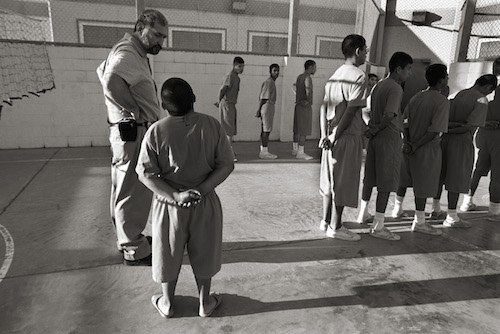 (8-3-16) The death of Jamycheal Mitchell, a 24 year-old African American diagnosed with schizophrenia, has taken yet another troubling turn. Officials at the Hampton Roads Regional Jail have acknowledged that security footage recorded outside his cell exists after first announcing it had been taped over because it didn’t show any “criminality or negligence” and there was no reason to keep it.
(8-3-16) The death of Jamycheal Mitchell, a 24 year-old African American diagnosed with schizophrenia, has taken yet another troubling turn. Officials at the Hampton Roads Regional Jail have acknowledged that security footage recorded outside his cell exists after first announcing it had been taped over because it didn’t show any “criminality or negligence” and there was no reason to keep it.
Mitchell’s body was found August 19 in his cell. A state medical examiner ruled that he had suffered a heart attack caused by starvation during the 101 days that he was detained inside the jail waiting for an open bed in a Virginia state hospital. Mitchell had been arrested for allegedly taking $5 worth of snacks from a convenience store without paying. Mitchell was 6 foot, 1 inch tall and weighted 190 pounds when he was arrested. While in jail, his weight dropped to 144 pounds.
Sarah Kleiner and Katherine B. Evans, two reporters at the Richmond Times –Dispatch were the first to learn that a camera in the jail had recorded footage that showed the front of Mitchell’s cell. On April 1, they filed a Freedom of Information Act request asking the jail to make that footage public. The recordings would show if Mitchell was fed, whether his food tray was returned empty, and how many times guards and the jail’s nurse checked on him and entered his cell.
On April 6th, Jail Superintendent David L. Simons wrote this response to the reporters:
“There is no security footage taken outside of Mr. Mitchell’s cell during his incarceration at Hampton Roads Regional Jail.”
Lt. Col. Eugene Taylor III, the jail’s assistant superintendent, was quoted by the newspaper in a follow-up interview saying that he and one of the jail’s internal investigators were the only people who saw the video before it was taped over.
“If there’s nothing on the video that’s going to show any type of criminality or negligence, we’re not going to maintain it,” Taylor said.
That appeared to be the end of the security camera story, until last week when reporter Kleiner discovered that the jail had found the missing footage.
Now this is where things become troubling. How did Kleiner learn about the footage?

 (7-21-16) Did a Virginia official, whose job is to protect the public from dishonest government officials, lie to me?
(7-21-16) Did a Virginia official, whose job is to protect the public from dishonest government officials, lie to me?




